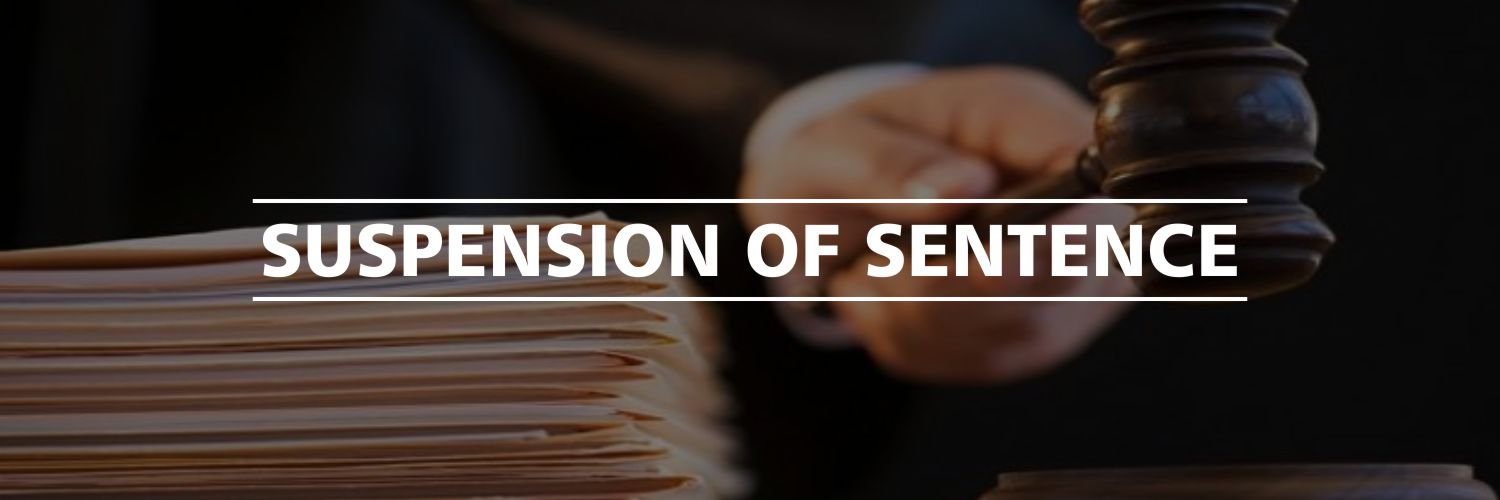All you need to know about Suspension of Sentence
“Suspension” means to take or withdraw something for the time being. Suspension of the sentence is the act of keeping the sentence of accused in abeyance at the pleasure of the person who is authorized to suspend the sentence. The power to suspend the sentence of the accused is a discretionary power but it has to be exercised judicially by the court.
Section 389 of the CrPC lays down the provision of suspension of sentence pending appeal. If the appeal is likely to be pending for a long time, it would be unfair for someone to spend the entire time in custody, as that could render their appeal infructuous.
Suspension of the sentence can be unconditional or conditional. An unconditional suspended sentence simply suspends the sentence with no conditions attached. The conviction is still a matter of public record, however.
If the suspension of the sentence is conditional, the judge can hold off from executing the punishment for as long as the convict fulfills the condition of the suspension. If the convict violates the terms of a conditional suspension, the judge can then execute the sentence primarily given to him.
In case no condition bail is granted, the person authorized to suspend the sentence has the power to have the offender rearrested. He can also direct the accused to undergo the rest of the sentence without assigning any reason.
Under Section 389 (1), the appellate court can exercise its power to grant bail if:
- The person asking for bail is a convicted person
- His appeal against the conviction is pending
Before granting such bail, the appellate court has to record reasons in writing. The appellate court may order that the execution of the sentence/order be suspended. Also, if the applicant is in confinement, the appellate court may order to release such person on bail or on his own bond.
Under Section 389 (2), the high court is enabled to exercise the power conferred on the appellate court even if the appeal is preferred to a subordinate court.
Under Section 389 (3), power is conferred on the trial court to grant bail if the convicted person expresses his intention to prefer an appeal. This provision is applicable in following conditions:
- The Court granting bail must be the convicting Court,
- The accused must be convicted by the Court,
- The convict must be sentenced to imprisonment for a term not exceeding three years
- The convict must express his intent to present an appeal
- The convict must be on bail on the day of the judgment,
- There should be a right of appeal
If the person is convicted of a bailable offense and he is on bail, the trial court can order to release such person on bail for such period as will afford him sufficient time to present the appeal and obtain the orders of the appellate court. The trial court has the power to refuse such convict on bail if there are “special reasons” for such refusal. The sentence of imprisonment shall be deemed to be suspended so long as he is released on bail. Thus this provision provides for “deemed suspension”. Suspension here is the automatic effect of a grant of bail.
The major difference between subsection (1) and subsection (3) is that vide subsection (1) suspension is the cause and bail is the effect and vide subsection (3) bail is the cause and suspension is the effect.
In the matter of granting bail, the appellate court should inter alia consider
- Whether prima facie ground is disclosed for substantial doubt about the conviction
- Whether there is any likelihood of unreasonable delay in the disposal of the appeal
If the appellant is ultimately sentenced to imprisonment for a term/ imprisonment for life in appeal, the time during which he is so released shall be excluded in computing the term for which he is so sentenced.








